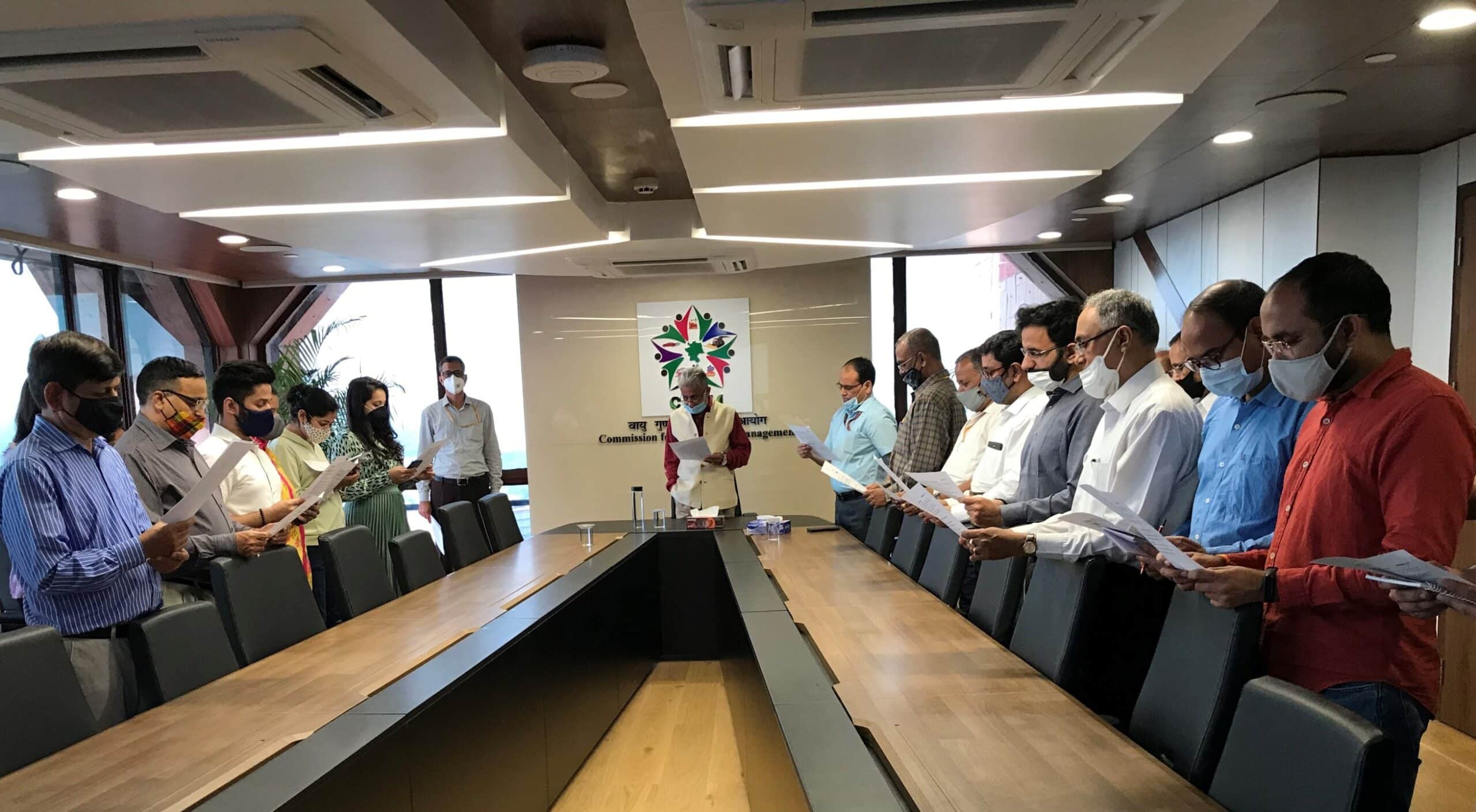CAQM Requires Aggregators and E-Commerce Entities to Adopt Cleaner Mobility Practices

Significant air pollution in the National Capital Region (NCR) is largely attributed to the transport sector, particularly during the winter months. To combat this issue, the Delhi government has introduced a new scheme aimed at promoting electric mobility among commercial vehicles. This initiative is part of a broader strategy to transition to cleaner modes of transportation, which is crucial for improving air quality in the region. The scheme also calls for neighboring states to develop comprehensive policies to address the high vehicle density in urban areas.
Transport Sector’s Role in Air Pollution
The transport sector is a major contributor to air pollution in the NCR, with commercial vehicles being the primary culprits. These vehicles often operate extensively, leading to higher emissions due to factors such as overloading and inadequate maintenance. The situation worsens during the winter months when pollution levels typically rise. Recognizing the urgent need for cleaner mobility solutions, the Delhi government has taken steps to encourage the adoption of electric and alternative fuel vehicles. This transition is essential not only for improving air quality but also for ensuring sustainable urban transportation.
New Regulations for Commercial Vehicles
In an effort to promote electric mobility, the Transport Department of the Government of National Capital Territory of Delhi (GNCTD) has launched the Delhi Motor Vehicle Aggregator and Delivery Service Provider Scheme, 2023. This scheme aims to regulate and license aggregators that provide passenger transport and delivery services, including those linked to e-commerce. The initiative emphasizes the importance of transitioning to zero-emission vehicles, such as Battery Electric Vehicles (BEVs), while also addressing the need for a shift away from traditional diesel and petrol vehicles. The scheme sets a clear direction for the future of commercial transportation in Delhi.
Comprehensive Policies Needed Across NCR
To effectively tackle vehicular pollution, neighboring states such as Haryana, Uttar Pradesh, and Rajasthan must also formulate comprehensive policies that encompass motor vehicle aggregators and delivery service providers. These policies should prioritize high vehicle density cities like Gurugram, Faridabad, Sonipat, Noida, Greater Noida, and Ghaziabad. These urban areas not only face significant intra-city transportation demands but also rely heavily on inter-city vehicle movement. A coordinated approach across state lines is necessary to ensure a unified effort in reducing emissions and improving air quality throughout the NCR.
Implementation and Compliance Measures
To facilitate the transition to cleaner transportation, the Commission has issued specific directives. Starting January 1, 2026, only CNG and electric three-wheeler autorickshaws will be allowed to join the existing fleet of vehicles. Additionally, no new conventional Internal Combustion Engine (ICE) vehicles running on diesel or petrol will be permitted in the fleets of light commercial vehicles, light goods vehicles, and two-wheelers. Existing vehicles can continue to operate, but compliance with these new regulations is mandatory. The GNCTD and other NCR state governments are tasked with ensuring adherence to these directives, which includes developing a web portal for effective monitoring and implementation. Public awareness campaigns will also be essential to disseminate information about these changes.
Observer Voice is the one stop site for National, International news, Sports, Editor’s Choice, Art/culture contents, Quotes and much more. We also cover historical contents. Historical contents includes World History, Indian History, and what happened today. The website also covers Entertainment across the India and World.
Follow Us on Twitter, Instagram, Facebook, & LinkedIn

